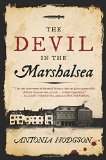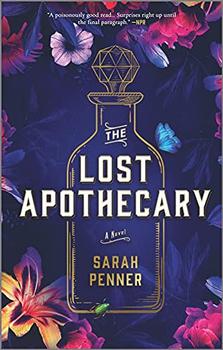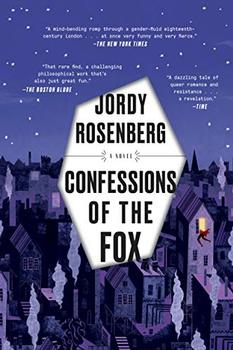Summary | Excerpt | Reviews | Beyond the book | Read-Alikes | Genres & Themes | Author Bio

Thrilling new historical fiction starring a scoundrel with a heart of gold and set in the darkest debtors' prison in Georgian London, where people fall dead as quickly as they fall in love and no one is as they seem.
It's 1727. Tom Hawkins is damned if he's going to follow in his father's footsteps and become a country parson. Not for him a quiet life of prayer and propriety. His preference is for wine, women, and cards. But there's a sense of honor there too, and Tom won't pull family strings to get himself out of debt - not even when faced with the appalling horrors of London's notorious debtors' prison: The Marshalsea Gaol.
Within moments of his arrival in the Marshalsea, Hawkins learns there's a murderer on the loose, a ghost is haunting the gaol, and that he'll have to scrounge up the money to pay for his food, bed, and drink. He's quick to accept an offer of free room and board from the mysterious Samuel Fleet - only to find out just hours later that it was Fleet's last roommate who turned up dead. Tom's choice is clear: get to the truth of the murder - or be the next to die.
A cunning debut historical mystery by Antonia Hodgson, editor in chief of Little, Brown, UK. Thoroughly researched, this mystery is set in London's Marshalsea debtor's prison in 1727. Populating her fast-paced narrative with real-life characters, Hodgson weaves a vivid tale which intrigues both as a solid historical mystery as well as a lucid portrait of a little known aspect of early Eighteenth century London society… A winner! I read, I learned, I thought about this book for many days after I finished reading it...continued
Full Review
(877 words)
This review is available to non-members for a limited time. For full access,
become a member today.
(Reviewed by First Impressions Reviewers).
A fragment of a wall is all that is left of Marshalsea Prison.
But Charles Dickens has made sure that its memory lives on. His father was imprisoned in Marshalsea Prison in 1824. He owed forty pounds to a local baker (about 3000 pounds today). Charles scurried around the city trying to collect money on his father's behalf but it was insufficient and his father was arrested. Dickens was only twelve years old at the time. While the rest of his family moved into the prison with his father, he took up lodging nearby, worked full time and used the money to support them and his lodging. The whole experience left a huge, terrible impression on him; one that he never quite shook off. It showed up in his work often.
 Marshalsea Prison was ...
Marshalsea Prison was ...
This "beyond the book" feature is available to non-members for a limited time. Join today for full access.

If you liked The Devil in the Marshalsea, try these:

by Sarah Penner
Published 2022
A forgotten history. A secret network of women. A legacy of poison and revenge. Welcome to The Lost Apothecary.

by Jordy Rosenberg
Published 2019
A love story set in the eighteenth-century London of notorious thieves and queer subcultures, this genre-bending debut tells a profound story of gender, desire, and liberation.
The thing that cowardice fears most is decision
Click Here to find out who said this, as well as discovering other famous literary quotes!